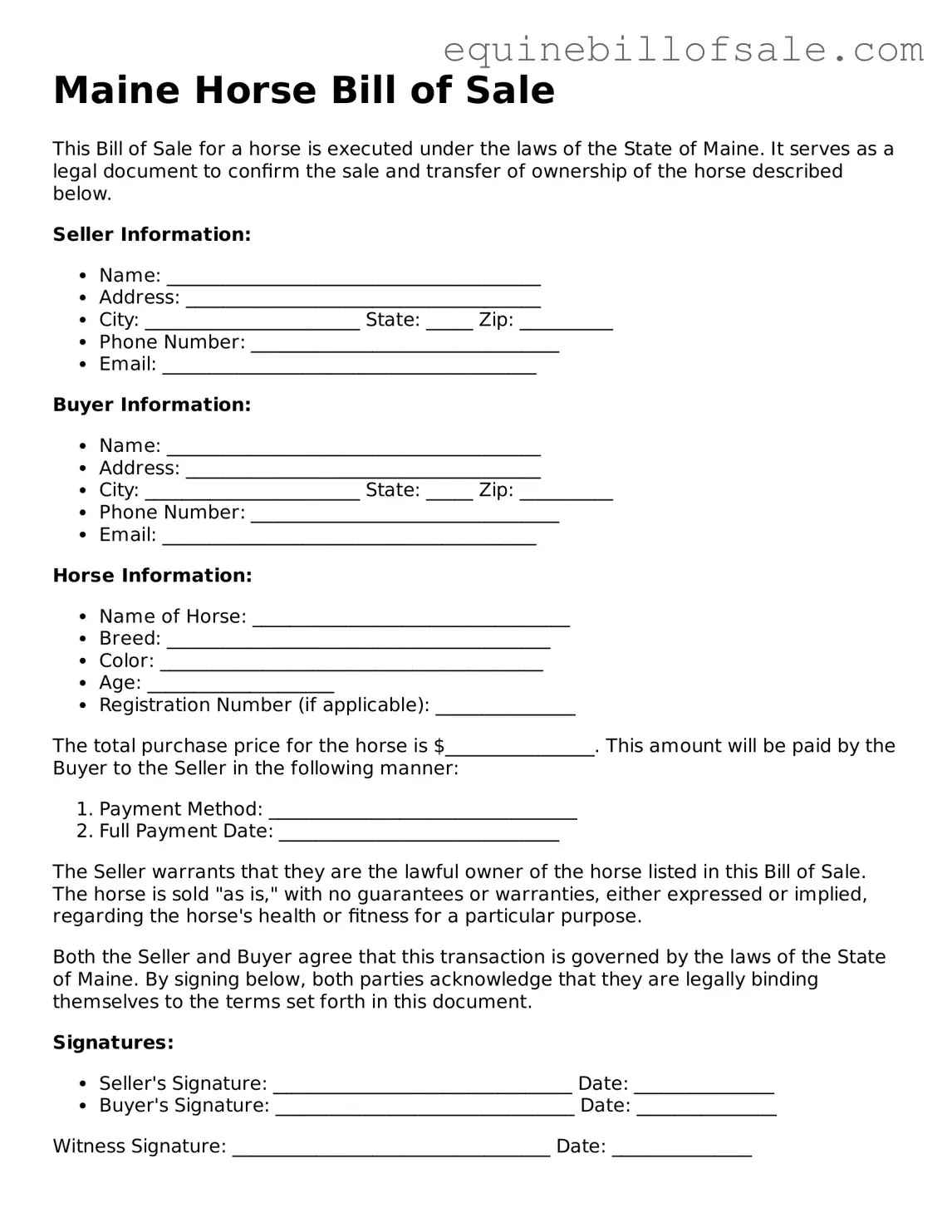What is a Maine Horse Bill of Sale?
A Maine Horse Bill of Sale is a legal document that records the transfer of ownership of a horse from one party to another. This form serves as proof of the sale and includes important details about the horse, the buyer, and the seller. It helps protect both parties by clearly outlining the terms of the sale.
What information is included in the Bill of Sale?
The Bill of Sale typically includes the following information: the names and addresses of both the buyer and seller, a description of the horse (including breed, age, color, and any identifying marks), the sale price, and the date of the transaction. Additional terms, such as any warranties or conditions of the sale, may also be included.
Is a Bill of Sale required in Maine?
Can I create my own Bill of Sale?
Yes, you can create your own Bill of Sale. However, it is important to ensure that all necessary information is included and that it meets the requirements of Maine law. Using a template or form specifically designed for horse sales can help ensure that you cover all essential details.
Do I need to have the Bill of Sale notarized?
Notarization is not required for a Bill of Sale in Maine, but it can add an extra layer of authenticity. Having the document notarized may be beneficial, especially if you anticipate any disputes or if you want to ensure that the transaction is formally recognized.
What should I do after completing the Bill of Sale?
After completing the Bill of Sale, both the buyer and seller should keep a signed copy for their records. The buyer should also ensure that they receive any additional documents related to the horse, such as health records or registration papers, if applicable.
Can I use the Bill of Sale for other types of animals?
While the Maine Horse Bill of Sale is specifically designed for horses, similar forms can be created for other types of animals. However, each type of animal may have different considerations, so it's advisable to use a form tailored to the specific species being sold.
